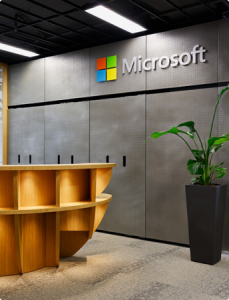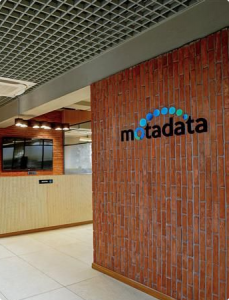Blockchain Technology Worth The Hype Nowadays?
Tech to reckon with
The financial and the commercial sectors have been targeted by the emergence of many technologies in the dawn of the 21st century, like Internet of Things, Big data and blockchain.
Blockchain is utilized to share, recreate, reproduce and synchronize data dispersed and scattered across various sites, organizations or countries.
The peer to peer decentralized network is controlled by consensus algorithms. There is complete absence of any centralized data storage system or central administrator.
Countless advantages and applications of blockchain have made it very sought-after across the industrial landscape.
So, it kept drawing attention from sectors like insurance, finance, energy, logistics and transportation etc. They just happily experimented with its applications.
However, now it’s time to find out whether the technology is all hype or it can be rationally applied to real-life scenarios.
Some facts
The blockchain hype appears to be over. Now it’s only a competent and intelligent solution for a given problem. Although it’s relevance in the financial sector is clearly indisputable and evident, critics seem to have a lot of questions about its effectiveness with respect to business applications. They mention, for instance, the construction sector which apparently does not derive much benefit from the technology and has been left high and dry.
However, in the financial sector, profits are made through blockchain in trading as well as mining. The technology appears to be truly shining in business sectors like finance, supply chain management and healthcare.
Let’s look at some of the wonderful applications of the technology by top companies.
1. An extraordinary enterprise has been built by Riot Blockchain whose key and fundamental activity is mining Bitcoin.
2. De Beers, the world famous diamond producer employs blockchain to track any diamond En route to a retailer from a miner.
3. Walmart uses the technology for everyday consumer merchandizes. The company traces movables in its food supply chain with it.
4. General Electric has been utilizing blockchain for tracking construction and maintenance of GE Aviation’s engine pieces and components.
5. Figure Technologies, an organization from California uses blockchain to manage its various activities like, refinancing of student loans, mortgages and home equity line of credit.
The future
Blockchain is useful, beneficial and functional. That said, one must keep in mind that it’s expensive to create such a system.
As a consequence, it may not be able to replace most of the centralized systems. If you are contemplating to incorporate blockchain in your business, then you should take note of the following points.
Maintenance is a pricey affair. A centralized database needs to be written only once.
However in a decentralized one, it needs to be written endlessly for umpteen times.
Maintenance cost rises manifold, because data has to be scrutinized, communicated and transferred thousands of times in a decentralized database.
It has a stringent developmental phase. Perfection is mandatory. An entire database can be corrupted by a single bug. Blockchain is a public and distributed network.
Therefore, to alter an inconsistent database, you require consent from everyone attached with it. So, you stare at a very slow process of development.
Process of increasing or decreasing the capacity or scaling of the system is extremely difficult as the data lives in thousands of places.
Another reason for the difficulty being the cost, which is very high for verifying and storing data in a decentralized system.
Conclusion
Blockchain value lies in targeted, well-defined use cases. Thoughtful adoption avoids wasted investment. At Claritus Consulting, organizations receive guidance on applying blockchain where it delivers measurable impact. Check out our case study where we enabled a blockchain-based cryptocurrency mining firm to achieve real-time visibility into mining performance, energy consumption, and operational efficiency through centralized analytics and dashboards.










